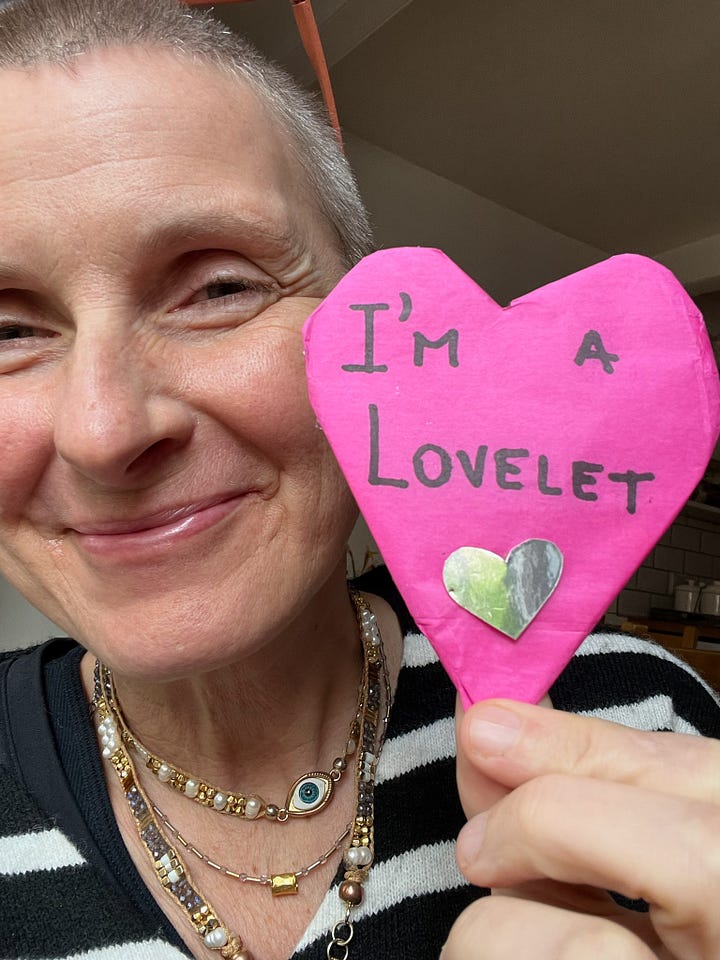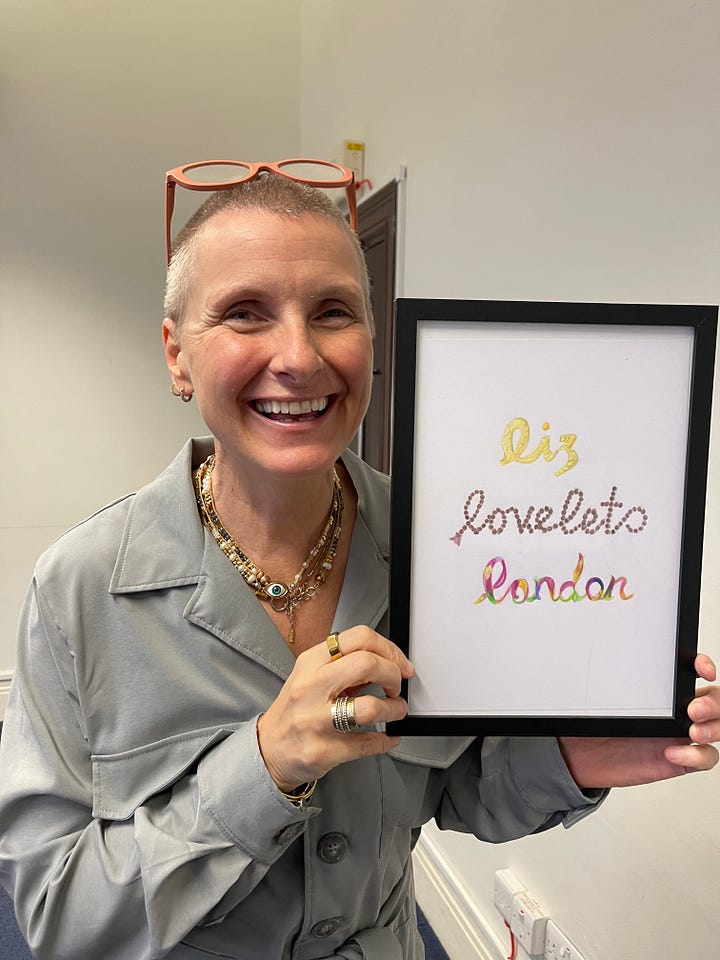I don’t know why T.S. Eliot thought April was the cruelest month, but I’m having a great time! I’ve just kicked off a month of events in Europe, and despite being away from my physical home for long stretches these days, I take great comfort and joy in various other metaphysical definitions of home. And this space is prime among them. No matter where I am in the world, I absolutely relish coming back to our corner of the Internet every Sunday to commune with you all. If only Eliot had had a smartphone!


April happens to be National Poetry Month (happy NPM to all who celebrate, which, let’s face it, should be all of us)! By way of communal observance this week, our special guest is the talented and lovely
— poet, poetry editor, professor, Substacker over at , and holder of a PhD on the subject of wonder in poetry. I mean!Part of Maya’s letter is a deeply felt and deeply relatable lament over the time and energy and entire selves that we lose to worry, which prompted me this week to ask Love what it would have me know on the subject. As always, I can’t wait to read your own letters.
See you in the comments, friends! Love you — but only always.
Dear Love, what would you have me know today about worrying?
Oh little hand wringer, anxiously reading the faces of the world for signs of distress and danger: please sit with me for a moment and let me speak to you.
I am the cure for worry. Let’s just cut right to it, babe. I am, for you, the only cure for worry. There are other remedies, sure, and you’ve tried them all — substances, people, activities, beliefs. But in the end, my voice is the deep current, the river beneath the river, that will always take you not above your worries, or around them, or even through them, but rather below them. My voice is the deep bedrock of absolute wisdom, where the world and its various dramas can never rattle us.
My love, let’s get real here: what percentage of your worries are about other people? No need to answer that. I already know. The vast majority, right? You are obsessed with thinking about other people and the trouble they are in. You are constantly looking at people, or groups of people, and calibrating their life choices and difficulties, deciding that they are in trouble, that they need help, that they are not okay, that they are on the brink of catastrophe, that they might die, that they are in danger, that something about their life needs to change before you can relax.
At what age did you start worrying about other people? No need to answer. I already know. You started worrying about other people as soon as you came online for consciousness, probably around the age of three, and noticed how dangerous the world was and how unstable and frightened everyone appeared to be.
And who taught you that worrying about people is the right and proper way to demonstrate your love for them? No need to answer that, either, because of course I know. This is what the women in your family taught you, for it is what most women have always been taught, through all of history, and what they have passed down for ages.
Most women believe that worry equals love.
At least that is what you were all taught.
My love, come back down here to the deep bedrock and listen to me. Come sit in the granite silence with me. What you were taught is not true. This is nobody’s fault, mind you. But a ferocious untruth was handed from grandmother to mother to daughter, all the way back to the first awakening of the human mind — that to worry about someone is synonymous with loving them.
Radically, I ask you to hear me out.
To worry about someone is actually not an act of love. To worry about someone is an attempt at control. Worry is in fact a way to avoid love, because the worried mind does not want to feel —cannot bear to feel — the exquisite, keening, heartbreaking, vulnerable tenderness of true love. All it wants is for something to stop. All it wants is for something to change. All the worried mind wants is for everything that looks like disorder to come back into order — on its terms.
But what does the mind know about anything, compared to the heart?
My child, how many years have you and I been talking — and when have I ever sat with you, when you were in the depths of terror or grief or confusion or rage, and told you that you needed to change? Never, right? And how many of these Letters from Love have you read within this community over the past eight months — thousands and thousands of them, right? And when have you heard me telling ANYONE that I was worried about them, or that they needed to change?
When have you ever seen me worried about anything?
Not once, right?
Unconditional Love does not need people or circumstances to change in order to love.
Unconditional Love does not need anything to be different, ever, in order to love.
Do you see the difference between this great unshakable force of deep and true Love, and the narrow, anxious, controlling, needful energy of worry?
My love, put it down. It’s an addiction, and as with all your other addictions, there comes a time when you hear a divine voice, my voice, say, “No more of that. You don’t need that anymore.”
Sit with people through their lives and deaths, their pain and fear, their ascensions and disgraces, their panic and danger . . . and just love them.
This is what I have called you toward as a life’s path, because this is what I have done with you.
I am not worried about you, Lizzy. I never have been. I would not demean you in that manner.
Simply, fully, and constantly, I love you.
Do the same with others.
That is all.
Love, LOVE
Prompt
This week, try asking Unconditional Love a two-parter. You can begin with “Dear Love, what would you have me know about worry?” and if you’re moved to seek more specific guidance, you can add this to your question: “and what should I do in moments of worry?”
Keep reading with a 7-day free trial
Subscribe to Letters From Love with Elizabeth Gilbert to keep reading this post and get 7 days of free access to the full post archives.



